Health Literacy and Public Libraries
***BEFORE YOU REGISTER FOR THIS ON-DEMAND WEBINAR PLEASE REVIEW IMPORTANT REGISTRATION INFORMATION BELOW***
 Public libraries need practical, evidence-based approaches to health literacy to combat the spread of health misinformation, and better connect with their communities to improve health outcomes and equity. This on-demand webinar provides an updated look at health literacy to equip librarians with the information and tools their communities need. Featuring a panel of experts on health literacy in diverse communities, this on-demand webinar highlights the important role health literacy has in achieving health equity, promoting social justice, and eliminating health disparities. Learn how public libraries can address health equity through cultural competence, collections, purposeful outreach, and partnership programs.
Public libraries need practical, evidence-based approaches to health literacy to combat the spread of health misinformation, and better connect with their communities to improve health outcomes and equity. This on-demand webinar provides an updated look at health literacy to equip librarians with the information and tools their communities need. Featuring a panel of experts on health literacy in diverse communities, this on-demand webinar highlights the important role health literacy has in achieving health equity, promoting social justice, and eliminating health disparities. Learn how public libraries can address health equity through cultural competence, collections, purposeful outreach, and partnership programs.
Originally presented May 8, 2024.
Learning Outcomes
At the conclusion of this on-demand webinar, participants will be able to:
- Identify ways in which public libraries can enhance equity in health literacy;
- Explore the role of community needs assessment and cultural competence for capacity building; and
- Consider the specific health literacy needs of diverse communities, including Latinx communities, refugees, older adults, and others.
Who Should Attend
This on-demand webinar is intended for all public library staff, most especially those who work in public services, such as community outreach. It will also be of interest to library administrators considering evidence-based approaches to meet the health information needs of their diverse communities.
Panelists
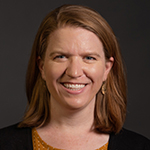 Emily Vardell (she/her) is an associate professor in the School of Library and Information Management at Emporia State University in Kansas. Her research interests focus broadly on information behavior, including health insurance literacy. Emily earned her PhD from the School of Information and Library Science at the University of North Carolina at Chapel Hill and her Master of Library Science degree from Texas Woman’s University. Prior to pursuing her PhD, she worked as a health sciences librarian, and she continues to be an active member of the Medical Library Association.
Emily Vardell (she/her) is an associate professor in the School of Library and Information Management at Emporia State University in Kansas. Her research interests focus broadly on information behavior, including health insurance literacy. Emily earned her PhD from the School of Information and Library Science at the University of North Carolina at Chapel Hill and her Master of Library Science degree from Texas Woman’s University. Prior to pursuing her PhD, she worked as a health sciences librarian, and she continues to be an active member of the Medical Library Association.
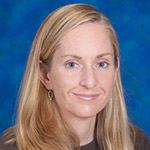 Deborah H. Charbonneau (she/her) is a professor and chair of the MLIS Program in the School of Information Sciences at Wayne State University in Detroit, Michigan. Deborah completed her PhD in Sociology at Wayne State University. Prior to joining the faculty, she worked as a health sciences librarian and she holds a Master of Library Science degree from the University of Pittsburgh. Her research interests include health literacy, accessibility, and scholarly communication issues. She currently teaches courses in library management, health informatics, research methods, and information policy.
Deborah H. Charbonneau (she/her) is a professor and chair of the MLIS Program in the School of Information Sciences at Wayne State University in Detroit, Michigan. Deborah completed her PhD in Sociology at Wayne State University. Prior to joining the faculty, she worked as a health sciences librarian and she holds a Master of Library Science degree from the University of Pittsburgh. Her research interests include health literacy, accessibility, and scholarly communication issues. She currently teaches courses in library management, health informatics, research methods, and information policy.
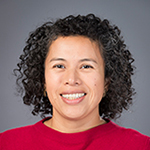 Maggie Shawcross (she/her) is a teaching and learning librarian at the Michener Library at the University of Northern Colorado, in Greeley, CO. Maggie received her Master’s in Public Health from the University of Northern Colorado and is a certified health education specialist (CHES) through the National Commission for Health Education Credentialing (NCHEC). Before becoming a librarian, she worked in public health as a health educator in various capacities. Her professional library experience includes serving as a consumer health librarian at a hospital and an adult services librarian at a public library, where she enjoyed providing health programming to patrons. Maggie received her Master’s of Library and Information Science from the University of Denver. Her current research interests include professional development for new health professionals, public librarians transitioning careers to academic libraries, and intellectual freedom issues.
Maggie Shawcross (she/her) is a teaching and learning librarian at the Michener Library at the University of Northern Colorado, in Greeley, CO. Maggie received her Master’s in Public Health from the University of Northern Colorado and is a certified health education specialist (CHES) through the National Commission for Health Education Credentialing (NCHEC). Before becoming a librarian, she worked in public health as a health educator in various capacities. Her professional library experience includes serving as a consumer health librarian at a hospital and an adult services librarian at a public library, where she enjoyed providing health programming to patrons. Maggie received her Master’s of Library and Information Science from the University of Denver. Her current research interests include professional development for new health professionals, public librarians transitioning careers to academic libraries, and intellectual freedom issues.
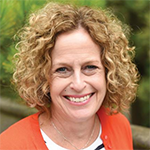 Margie Sheppard (she/her) is the community engagement coordinator for the Network of the National Library of Medicine (NNLM), Region 3. She is based at the University of Kansas Medical Center in Kansas City, KS. Margie holds an undergraduate degree in Nursing from Webster University and a Master of Library Science from Emporia State University. Prior to joining NNLM she was a consultant for a public library system in Central Kansas. She currently teaches courses in multilingual health information, Wikipedia editing, and health and wellness.
Margie Sheppard (she/her) is the community engagement coordinator for the Network of the National Library of Medicine (NNLM), Region 3. She is based at the University of Kansas Medical Center in Kansas City, KS. Margie holds an undergraduate degree in Nursing from Webster University and a Master of Library Science from Emporia State University. Prior to joining NNLM she was a consultant for a public library system in Central Kansas. She currently teaches courses in multilingual health information, Wikipedia editing, and health and wellness.
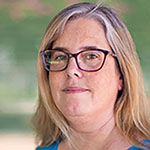 Angela Murrell (she/her) is an associate librarian at the University of Arizona Health Sciences Library in Tucson, AZ. Angela serves as one of the liaisons to the College of Medicine. Her twenty-year library career has been in hospital, medical school, and research settings focused primarily on information literacy, health literacy, and library instruction. She earned her Master of Library and Information Sciences degree from Louisiana State University. Angela's research interests focus on information and data literacy, improving research skills in health practitioners, and how health humanities can improve health outcomes for patients and medical professionals.
Angela Murrell (she/her) is an associate librarian at the University of Arizona Health Sciences Library in Tucson, AZ. Angela serves as one of the liaisons to the College of Medicine. Her twenty-year library career has been in hospital, medical school, and research settings focused primarily on information literacy, health literacy, and library instruction. She earned her Master of Library and Information Sciences degree from Louisiana State University. Angela's research interests focus on information and data literacy, improving research skills in health practitioners, and how health humanities can improve health outcomes for patients and medical professionals.
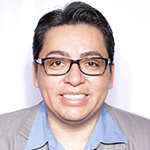 Brenda M. Linares (she/ella) is associate dean of library services at the University of Missouri-Kansas City (UMKC). She was previously the School of Nursing liaison at the University of Kansas Medical Center. Brenda received her bachelor’s in finance from California State University, Northridge; she also has a Master of Library and Information Science from the University of California, Los Angeles, and a Master of Business Administration from North Carolina State University. She is a member of the Academy of Health Information Professionals (AHIP). Brenda currently serves on the Medical Library Association (MLA) board of directors and is the MLA president-elect. Brenda has also received several NNLM grants to collaborate and work on outreach projects to promote patient and consumer health education resources. Her interests include outreach, consumer health, instruction and technology, health literacy, patient education and evidence-based research, mentoring, DEI, and leadership and management.
Brenda M. Linares (she/ella) is associate dean of library services at the University of Missouri-Kansas City (UMKC). She was previously the School of Nursing liaison at the University of Kansas Medical Center. Brenda received her bachelor’s in finance from California State University, Northridge; she also has a Master of Library and Information Science from the University of California, Los Angeles, and a Master of Business Administration from North Carolina State University. She is a member of the Academy of Health Information Professionals (AHIP). Brenda currently serves on the Medical Library Association (MLA) board of directors and is the MLA president-elect. Brenda has also received several NNLM grants to collaborate and work on outreach projects to promote patient and consumer health education resources. Her interests include outreach, consumer health, instruction and technology, health literacy, patient education and evidence-based research, mentoring, DEI, and leadership and management.
Important Registration Information
Log into or create your ALA eLearning account
An ALA eLearning account is required to register. Don’t have an account? Create one for free by going to the “Log in” menu located at the top right corner of your screen. No membership is required to create the account.
Redeem your signup code to complete your registration
Once you’ve registered for this on-demand webinar, a signup code will be added to your ALA eLearning account and emailed to you. Find the signup code on your signup code page, then redeem it on your account’s dashboard to complete your enrollment in this on-demand webinar.
- Need to purchase registration on behalf of a colleague?
- Need to register a group of 3 or more?
- Need to register with a purchase order?
Review the ALA eLearning FAQ if you need more information.
Accommodations
This on-demand webinar is closed captioned in English (United States).
If you have a physical or communication need that may affect your access to this on-demand webinar, please contact us at plawebinars@ala.org or 800-545-2433 ext. 5PLA (5752) prior to registering so we can attempt to provide appropriate accommodations.
Tech Requirements
To play this on-demand webinar you should use a browser with native HTML5 support. Please use the most up-to-date version available of Chrome, Safari, Firefox, Opera, or Edge. A fast Internet connection and computer is recommended.
Contact
This webinar is presented by the Public Library Association (PLA), a division of the American Library Association (ALA).
If you have questions or problems accessing a recording, send a message to plawebinars@ala.org or call 800-545-2433 ext. 5PLA (5752).
